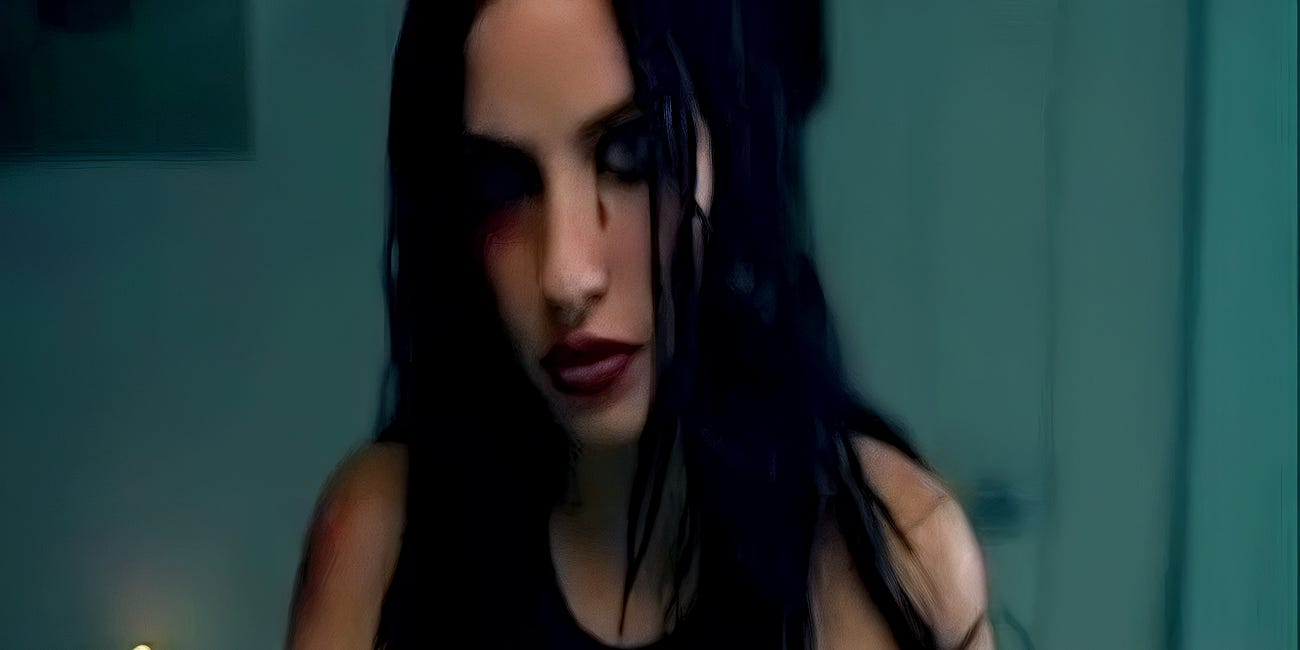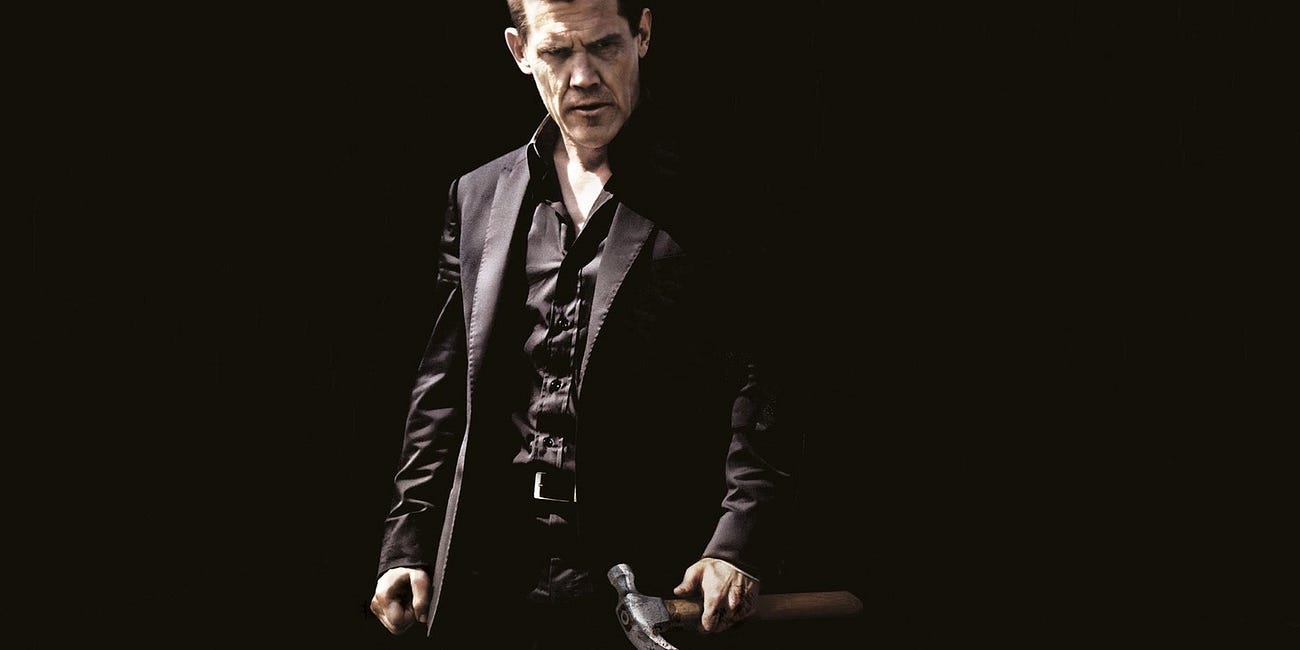I’ve spent most of my life in a coma, bereft of self-ownership of mind… withdrawn, dissociated (like most people to a degree). My will was hijacked by the false self, the caricature of my abusers, the betrayer of my values.
This false self was the persona that was supposed to insulate me from my hostile environment, to get me attention and approval; faux acceptance from all the wrong people… all at the expense of my true self, my everything.
This is part 1 of a series of articles, an introduction to the false self tribulation, through which I aim to raise awareness of the reality of the false self, its life-decimating effects, and perhaps explore solutions to it, so that we can be free… as free as this world allows. Please, read it, save it, share it; it has the potential to save your life, quite literally.
Somewhere in my childhood, my true self withdrew, dissociated, subsided, and hid in total isolation and passivity. It was too bruised and scared to surface. This was an act of denial of my self-esteem, confidence, and initiative to take ownership of life. I gave in to relentless abuse and my lack of a support system. I naively concluded and decided that I was unworthy of good things. I sacrificed my dignity and integrity by denying my true self in hopes of mitigating the trauma. This is not an excuse; this is an explanation. I won’t blame myself, but I will hold myself accountable.
By stepping aside for the false self to take over, I had pushed down my defining virtues of purity, innocence, high standards for myself, and my naive, by-default love for people. I became apologetic and even resentful of my virtues; I felt they weren’t serving me, since they were making me oversensitive to abuse, and even inviting it. Agreeableness, kindness, the need to befriend and to be accepted, and consideration of others are weaknesses when you don’t know how to stand up for yourself, or when you don’t have an emotional cushion, supportive people, or a safe place to call home. Still, there were those few who seemed to acknowledge my virtues, but I couldn’t see them at the time, couldn’t recognise their preciousness among the sea of vultures drowning me.
For decades, I lived as the false self, making all the wrong choices, obsessing over getting the approval of all the wrong people. I was dismissing the few good people around me who valued the things about me that I grew to despise, which were, in fact, the only things of worth I had… I just didn’t know how to appreciate them, and how to fortify my true, pure self from a hostile environment.
After decades of self-therapy and self-reflection, I finally found clarity; I understood who I always was at my core, and that I could be that unafraid, unapologetically, regardless of the perpetually hostile nobodies around me. I also realised that I had been living a lie as a soulless persona for most of my life, a soulless robot on autopilot, a shell of a man.
When I finally realised that most of my life was lived, not by the true me, but by the fake monster of the false self, it was like waking up from a decades-long coma, understanding that my youth had passed by me. It was even worse than a coma, actually. It was waking up from being mind-controlled for decades, with a horrible history of hurting others and myself, of consciously betraying and dishonouring my true values. I wasn’t really in control of what I wanted and what I did. However, I was still responsible for my life-destroying mistakes, since I had succumbed to the trauma… I had believed the lies of abuse, that I was worthy of it. I was at fault for letting my true self step aside, and allowing the false self to take over. I was responsible for blaming myself for being abused. I was responsible for disrespecting my true self enough to conclude that I deserved the abuse I had received.
I had let down my true self, despising him for being sensitive, unsupported, and alone, for just having the bad luck of being born in a shitty environment full of shitty people. And through the garbage, I couldn’t see or appreciate the few treasures that loved me for who I really was. I thought I “needed” the approval of my abusive family and intimidating peers first before I could feel I deserved the approval of anyone else. If anything, I “rejected” those who already approved of me for valuing in me what I thought was weakness. But what they saw in me was my only strength all along, as I came to realise much much later, when it was too late to make meaningful changes.
I was responsible for telling my true self that he was loathsome. It was on me for twisting my self-image to that of someone shameful, and unworthy of self-respect. Why? Because this is what my abusers told me with words and actions. And I chose to believe them instead of the few good people who loved me as I truly was.
For this betrayal of myself, but more importantly, of the good people who loved me for me, I have paid and still pay.
I woke up from the coma so late in life that it didn’t matter anymore. Granted, most people never wake from the nightmare of the false self, and after a certain point in life, perhaps that’s a good thing. If you spend most of your life in prison, why would you ever want to exit it as a bitter old man with no prospects, no opportunities to apply what you learned, with nothing but regrets and the demons of “what could have been” to torment your sleepless nights? Why exit to remember, to start where you left off, as a bruised child, with nothing but the ghosts of the good people you betrayed to keep you company? Now they are long gone, but you stayed there, in the haunted past that slipped through your fingers. Why would you not want to stay in prison, in the comforting delusion of the false self?
Why do the work, the psychoanalysis, the soul searching, the self-reflection, and the gruesome act of self-accountability, only to free yourself from the false self, but too late to make any meaningful difference, too late to help yourself or anyone else, because nobody listens, nobody learns unless they make the mistakes themselves? And then it’s too late to learn anything…
What’s the point of waking up too late only to realise that there was no point in learning harsh lessons that won’t get another chance to be applied? Why suffer the knowledge that the self-fulfilling prophecy of abuse has been fulfilled, that you have made the mistakes that made you deserve the abuse you got when you didn’t deserve it?
What’s the point of waking up from the coma at the point where you left off, in vague childhood, when everything and everyone from that time don’t exist anymore. Why pick up from a child-like state only to find yourself a child in an adult body trying to navigate a world that is still hostile?
Sure, your true self is fortified now. You are now able to be you, unapologetically, without having to succumb to fear, to dissociate beneath the surface of a false self. But still, what good is the true self now when almost all of the relationships you have built were the false self’s doing? What good is the true self now when you, as the false self, have alienated all the good people? What good is waking up from the Matrix too late, too far gone to make a difference, too delayed to improve anything, or to meaningfully connect with anyone?
If anything, a late awakening can be worse than not waking up at all: you’ll lose it all, a life built on the false self, but a life nonetheless. How will the true self serve you now when, one by one, you lose everyone around you, even if they are the false self’s “achievements”? How fair is it for the people who’ve known you all your life as the false self, who have invested time and effort into connecting with you, and now having to meet the new you, the true you, but the you they didn’t sign up for?
These and other questions I aim to explore in this series on the false self tribulation. With your help, I hope we can share insight and make breakthroughs together.
'Crawling' by Linkin Park...
The song ‘Crawling’ by Linkin Park is perhaps one of the most accurate descriptions of the false self; lyrically, musically, and visually through the music video. It describes something “crawling in my skin,” the feeling of the false self, a foreign entity physically transforming you into something you’re not…
The Allegory of 'Oldboy'
The 2013 movie ‘Oldboy’ is not a story about revenge. The theme of revenge is just a plot device to lubricate the story. The true meaning is far deeper.
The price of redemption
The most painful part of fending off your demons to rediscover your true, innocent self is the realisation that the best people were there for you all along… and all you did was hurt them, shun them, betray them.
The cycle of abuse
Abusive people are that way because they have accumulated internalized trauma, enough so that they have identified with the humiliations of their past. This is not an excuse; it is an explanation.











I want you to know I relate more than you could ever know. I just wish we were friends and could talk about these things. Wish I had a friend like you
I am quite interested in this topic, and so I look forward to what you post.
Some have said that the greatest ethic is to reduce suffering and misery. Notice, for example, that Buddhism is focused almost entirely on that ethic, and that the means is almost entirely development of self-awareness. (Lots of different ways to say that, of course.)
What do you mean by 'True Self'? In a way, it almost seems like you mean only a 'good' false self as opposed to a 'self-deprecating' false self.
--
Thoughts I have had:
Self: True self vs. False self. True self is direct self-knowledge of being; it is self-awareness without any word or representation. The idea of false self is always expressed indirectly in statements, ideas, or inclinations, usually of the form, “I am this” or “I am that.” False self is truly other than self.
Other: Not true self. Other than self. False self. Illusion.
The self cannot be found anywhere in any world. And yet, here it is. --a common Buddhist maxim.
Self and Other [6] at https://burnteliot.substack.com/p/on-reality-and-being